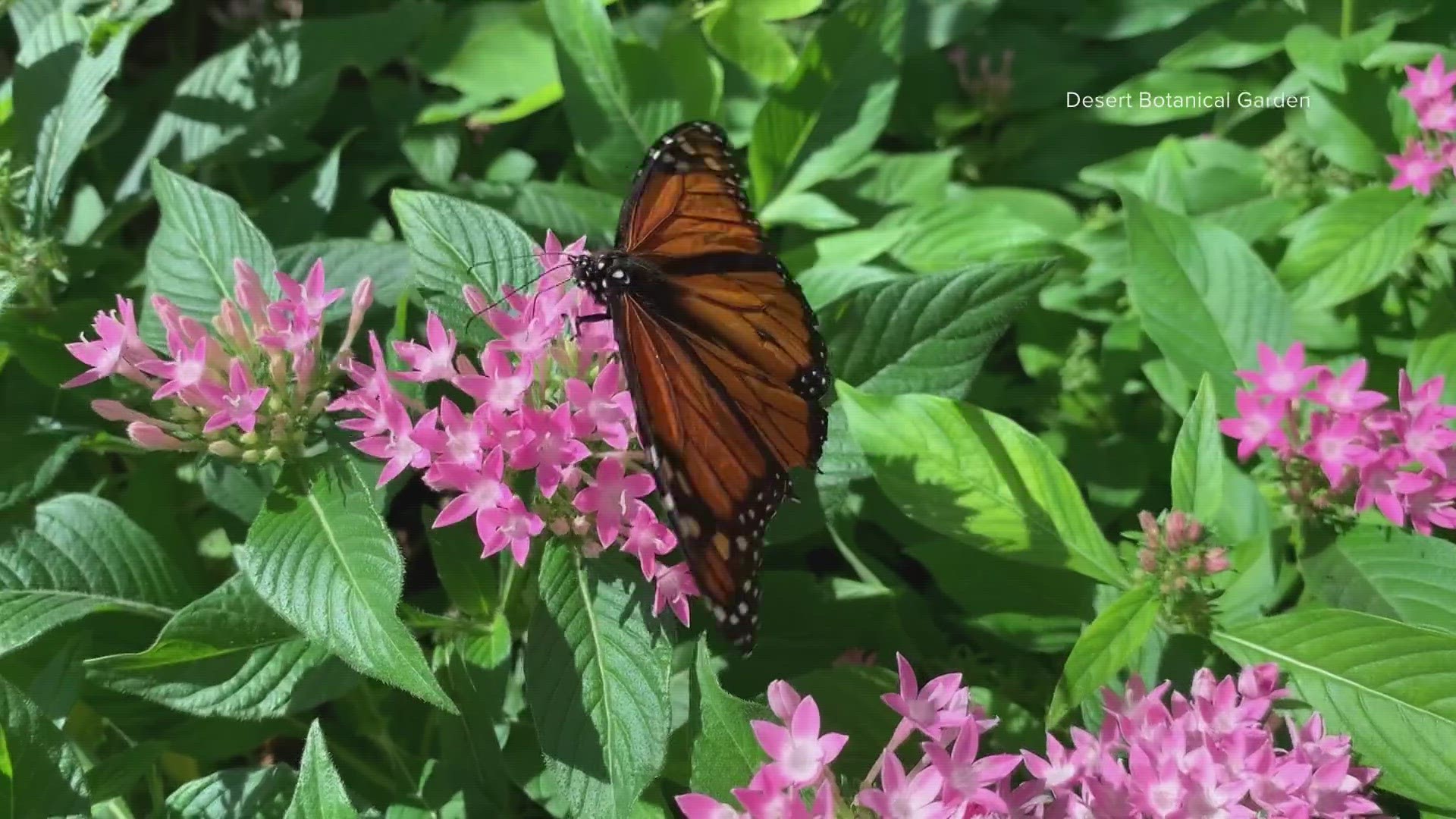PHOENIX — When you see a Monarch butterfly, what do you do? More often than not, you probably stop what you're doing and watch as it effortlessly floats on by. There's something mysteriously beautiful about these insects, but researchers want to know more.
"Butterflies are a big part of our Monarch and pollinator conservation that we have here at the gardens," said Natalie Melkonoff. "Butterflies are important for a number of reasons. They're pollinators, they're part of our food chain so other things like birds, lizards and other insects will eat butterflies. That's an important function they serve in the ecosystem."
Since Monarchs are pollinators, some of the flowers we see and food we eat are thanks to them. They also are the only butterfly to complete a two-way migration. They're unique and something small that captures the attention of most people when seen.
"One reason we study Monarchs is they do this migratory journey every year mostly the same place and same time," said Melkonoff. "If Monarch's aren't doing well than other insects probably aren't doing well."
In 2016, the Desert Botanical Garden launched a new effort called the Great Milkweed Growout. It was created to help encourage people to create Monarch habitats in their urban spaces by planting Milkweed. The plant plays a critical role in the lifecycle of these particular butterflies.
"They have a special relationship with it," said Melkonoff. "Milkweed is the only plant Monarch butterflies will lay their eggs on and that Monarch caterpillars can eat. So that plant has a certain amount of toxicity in its leaves so when the caterpillars are eating that plant, they ingest the toxin and it makes them distasteful to predators."
Arizona has about 30 different species of Milkweed and studies have shown some are more favorable to Monarch caterpillars than others. Researchers though want to learn more about this insect and are now inviting the public to help with their studies.
"We launched this program to explore what Monarchs are doing in the winter," said Melkonoff. "We know that Monarchs migrate, and we see really big migrations down to Central Mexico and the coast of California and that's where Monarch's generally spend their winters. But we have seen a small population of Monarch's spend their winters in Arizona and their behavior seems to change depending on the year."
But what causes that change in behavior and why are something they'd like to know. So, they're asking people with a Milkweed plant on their property or somewhere nearby (like a park, etc.) to start making observations. People can go to Nature's Notebook once a week and answer a few questions about what they're seeing. It's something small that can have a huge reward.
"We really need the public for this type of data," said Melkonoff. "We don't have the manpower to collect all of this on our own, so we really need them, we need their help. It's great to have a community project people can be involved with and it's helping us get good data and better the management about their habitat."
The Monarch butterfly population is currently threatened because of changes to the climate. However, this research could help play a part in making sure this community of insects thrives. Researchers just hope others will get involved as well.
"Information like this is a good way for us to manage a habitat for Monarchs, Melkonoff said. "Monarchs are an iconic butterfly that capture the attention of people in the country. They span cultures and everybody seems to have a story about Monarchs, so it's a good way to get people to think about conservation. This is a direct action they can take that has a benefit."
More information can be found here.
>> Download the 12News app for the latest local breaking news straight to your phone.
12News on YouTube
Catch up on the latest news and stories on the 12News YouTube channel. Subscribe today.

